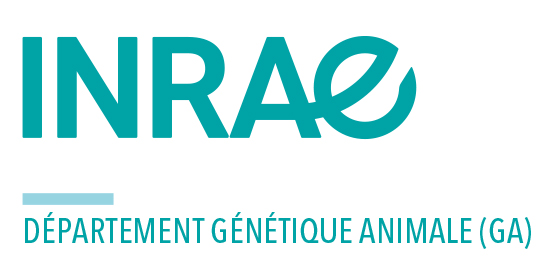Maternal and genetic effects on embryonic survival from fertilization to swim up stage and reproductive success in a farmed rainbow trout line
Résumé
Reproductive success and offspring survival until sexual maturity are essential traits both for fish fitness and aquaculture development. Variation in offspring's survival among family results in unbalanced parental contributions to the next generation and may explain the loss of genetic diversity observed in some farmed populations. Therefore, we studied the variance in parental contributions to a progeny cohort, as well as the biological factors impacting offspring early survival in rainbow trout. The data consisted of 945 individual survival observations from fertilization to the juvenile stage from 135 full-sib families of the INRAE experimental synthetic line. Survival was assessed at eyed-egg stage, hatching, and 3 weeks after first feeding. We used a fullfactorial mating design to partition phenotypic variance in early survival traits into maternal and additive genetic effects under threshold GBLUP models considering the inclusion of genomic information for 32,725 SNP. Average offspring survival proportions were 91.0% at the eyed-egg stage, 87.2% at hatching, and 84.4% three weeks after first feeding. Significant unbalanced dam contributions were observed at the eyed-egg and hatching stages. Low heritability was estimated for early survival traits (h 2 =0.20 ± 0.12 and 0.13 ± 0.09 for survival from egg-eyed stage and, respectively, hatching and first feeding), revealing that additive genetic variance was not significantly different from zero, while maternal effects explained a larger part (c 2 =0.37 ± 0.16 and 0.15 ± 0.07, respectively) of the phenotypic variances. There was no evidence of inbreeding depression on survival in our study. Phenotypically, offspring early survival was positively correlated with dam fecundity, while it was negatively correlated with dam post-spawning weight. Negative, but not significant association was observed between early survival and dam's average egg weight. If a study of genetic correlations confirms these phenotypic trends, promoting high fecund females should help the breeders to increase offspring early survival and to maintain genetic diversity in breeding programs.
Domaines
Sciences du Vivant [q-bio]
Origine : Fichiers éditeurs autorisés sur une archive ouverte
licence : CC BY NC ND - Paternité - Pas d'utilisation commerciale - Pas de modification
licence : CC BY NC ND - Paternité - Pas d'utilisation commerciale - Pas de modification




